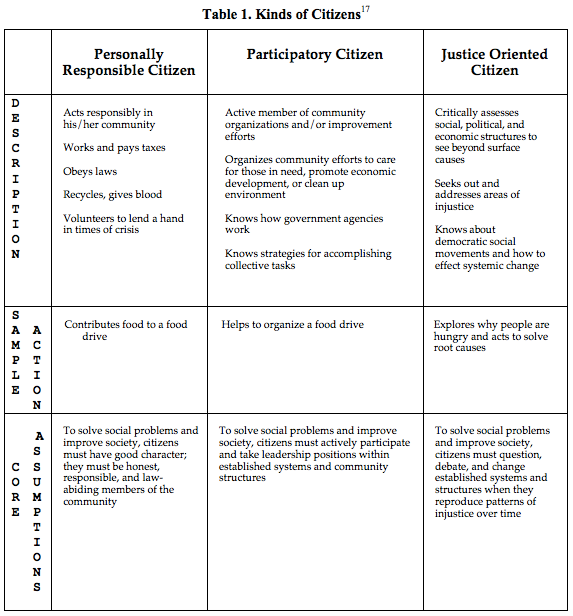What is Social Activism?
Activism. According to Anjali Appadurai’s Ted Talk: What is Activism? They define activism as:
“The practice of addressing an issue, by challenging those in power. It is an act done by civil society directed towards a system of governance.”
In addition, according to Shahla Ghobadi, an assistant professor from the University of Manchester. She describes social activism as a broad range of activities that are beneficial to society or particular interest groups. Social activists operate in groups to voice and educate for change targeting global crises using social media. Social activism could include examples of:

Let’s face it, social media has engulfed most of our lives in some way. Many of our students use social media every day. Often it is the first thing we do in the morning and the last thing we look at before bed. The majority of information that our students receive will be through social media. A campus newspaper I found from New University: the University of California discussed that we are in a Hashtag generation, which could inform and inspire us to take action, start a movement, and allow our voices to be heard. As educators, it is important for us to embrace social media, and promote students to become digital citizens to learn how to participate in social media to its greatest extent.
The Benefits of Social Activism:
Social Media provides an avenue for people to be heard. Often we only hear from people who had large amounts of influence, money, and power. It was their opinions that mattered (still largely is the same way today). In today’s digital age it provides a voice for others. We are able to hear from people who are from marginalized communities, including but not limited to, people of colour, the LGBTQ community, indigenous, refugees, etc. Many of these people have not had a platform where their voices could be heard to the level of the traditional media.
Another benefit of social media also provides a raw view of the world around us. The media is not necessarily involved. By people joining in on social media for a cause, brings awareness to issues that may otherwise be dismissed. All the post needs is a spark. This is what happened with the #FlintWaterCrisis.
Furthermore, by participating in social activism you are making a statement. As Katia Hildebrant from the University of Regina states,
If we are online, as educators, and we remain silent about issues of social justice, if we tweet only about educational resources and not about the release of the Truth and Reconciliation Commission report in Canada, or about the burning of Black churches in the southern United States, we are sending a clear message: These issues are not important.
As Katia explains, we have a responsibility to use our privilege to speak out, to participate in meaningful ways to promote equity in networked spaces.
We have a responsibility to risk our privilege to give voice to social inequities and injustices. We have a responsibility to risk our privilege to give voice to those who have no privilege to risk.
– Katia Hildebrandt
The Threats of Social Activism:
Many believe that the act of social activism may only create the impression of activism. This has been found in many of the articles that I have read. By changing a profile picture, liking a tweet, or 1 like = 1 prayer posts on Facebook that the older generation seem to enjoy, raises the question, is my contribution only surface deep? Online activism: it’s easy to click, but just as easy to disengage questions,
“Is your contribution deeper than a click?”
In addition, we have also seen the impact of how social activism campaigns have impacted many governments across the world. Many countries have internet filtering and have blocked access to several websites, or conduct internet surveillance.
A couple key countries to ban social media that stand out include China and Bangladesh. China’s Internet Censorship Agency has its own internet censorship song (which is interesting, to say the least). The reason why it was banned is that citizens used it to organize protests that turned into riots. Currently, Facebook and Twitter are only accessible in a small region of Shanghai, or in Hong Kong.
Bangladesh’s social media ban was put in place due to a Supreme Court decision to uphold the death sentence of two men for war crimes. It never has been reinstated.
Furthermore, another threat of social media is the idea of “doxxing”. Doxxing is publicly spreading information about individuals with the intention of harming their social or work lives. This is truly a terrifying situation where it ensures that people are kept accountable for their online actions.
What do I Have to Risk?
Writing this blog post has made me think deeply about the impact that I have had regarding social media activism. Am I making a difference? Am I being complacent in taking the cause further? By posting on Social Media how can you participate in productive conversations online?
We must ask ourselves:
- Is my involvement only surface level?
- How can I take this further, what can I do to be more involved in the cause or in the conversation?
- What is our role in educating youth the potential of social media
We have a lot of privilege to live in Canada with access to technology that we do. Just as we teach students to become personally responsible citizens, it is equally important to teach them to become participatory citizens and justice orientated citizens.

As Katia points out, access to technology comes down to privilege. As the Pew Research Center has discovered, “Black and Hispanic social media users are more likely to say these sites are personally important for getting involved with issues, expressing their political views”.
We are often held back by posting on social media as we are fearful that our posts, comments, photos, etc. could have negative consequences leading to the loss of our jobs, or making us unhireable. We have seen this happen, most recently with the firing of Don Cherry from Sportsnet (although not produced through social media, but nonetheless a platform used to reach a vast amount of Canadians), and we have seen this in the recent federal election with politicians stepping down due to inappropriate comments made on social media.
Brooke highlights in her blog post Social Media Activism… Are We There Yet?:
Even if people choose not to participate in these discussions on social change, the hashtags, news articles, videos, that they find on their social media platforms make it difficult to ignore.
I agree with Brooke, that the power that social media has in inspiring people to become participatory citizens or social justice citizens in addition to socially responsible citizens is due to the fact that social media campaigns make these issues hard to ignore. It provides a venue where previously we were not a part of these discussions but now we are able to participate.
If we have the privilege to be a part of these conversations and discussions we need to step up and have our voices be heard, standing in solidarity with those who do not have such privilege. If we do not have discussions on social media due to living in fear of the consequences of our social media activities it is a result of our privilege. I echo as Katia and many of my other colleagues such as Brooke, and Catherine, as we all believe social justice needs to be taught. By not participating and staying silent tells the world that the issues are not important. However we as educators have the opportunity to teach students about social media by teaching them to become participatory, and social justice citizens. And it just so happens that social media provides the avenue to make these issues relevant to our students.

Great post Curtis. I enjoy how you have organized your discussion this week around the benefits, threats and personal risk of social activism. The debate about whether or not social media activism is meaningful was a complicated blog topic for all of us to tackle this week! You have done a nice job of capturing the problematizing nature of the social media activism debate in your post. I appreciated reading about how you considered the personal risk in participating in social media activism. You asked questions that we should all be asking ourselves. There is certainly a level of personal and collective responsibility that each person much find their way towards and it begins with questioning how we each can be a part of making our city, province, country a better place for all.
Hi Curtis,
Thank you for sharing your thoughts on social activism. I find it a very challenging topic, since it has so many benefits, but at the same time, as you mentioned, there can be always the negative consequences, the misunderstood comments, or words taken out of context that can lead to a lot of grief. Having said that, this doesn’t mean that we should stop taking an active role when it comes to bringing awareness to issues. I think being educated and doing research before we voice our opinion is crucial though.
Thanks for the great blogpost. I appreciate the questioning on the risks involved related to social media activism. My mind always seems to lead me to seeing too much risk in joining waved of social media activism. I also appreciate that not participating can be as unproductive. Great food for thought.
Pingback: Being an educator in the world of social media activism #difficult – danieldion1
Wow, what a thought-provoking post, Curtis! It’s so important to look at these things from every angle, and it seems like you have done so. I love that you pointed out that social media provides a voice for others in today’s digital age. You brought up a lot of good points from Katia’s post, especially when she talked about the privilege of social media. I learned a lot from her post about it, and it seems like you did as well. Thanks for reminding us that “if we have the privilege to be a part of these conversations and discussions we need to step up and have our voices be heard, standing in solidarity with those who do not have such privilege.” Thanks again for such a good read!
Definitely echo what other’s have mentioned on your post. Reading yours and other posts have challenged me and how I use social media personally and in the classroom. I’m working hard and improving on moving to new levels in the way I approach social media. Important conversations like this one are so important. Thanks.
Thanks for the concise and thought-provoking post–I saw how many of our classmates blogs this week linked to it and thought it must be worth a read! Glad I did!
Pingback: Keeping the “Act” in Social Activism
Pingback: Exploring Social Media Activism – Loreli Thibault
Pingback: Slacktivism and Me – Really Jay Sharp
Excellent, thought-provoking work, Curtis. You made me re-think my use of social media and its use for activism, and how I can and should approach this with students as well.